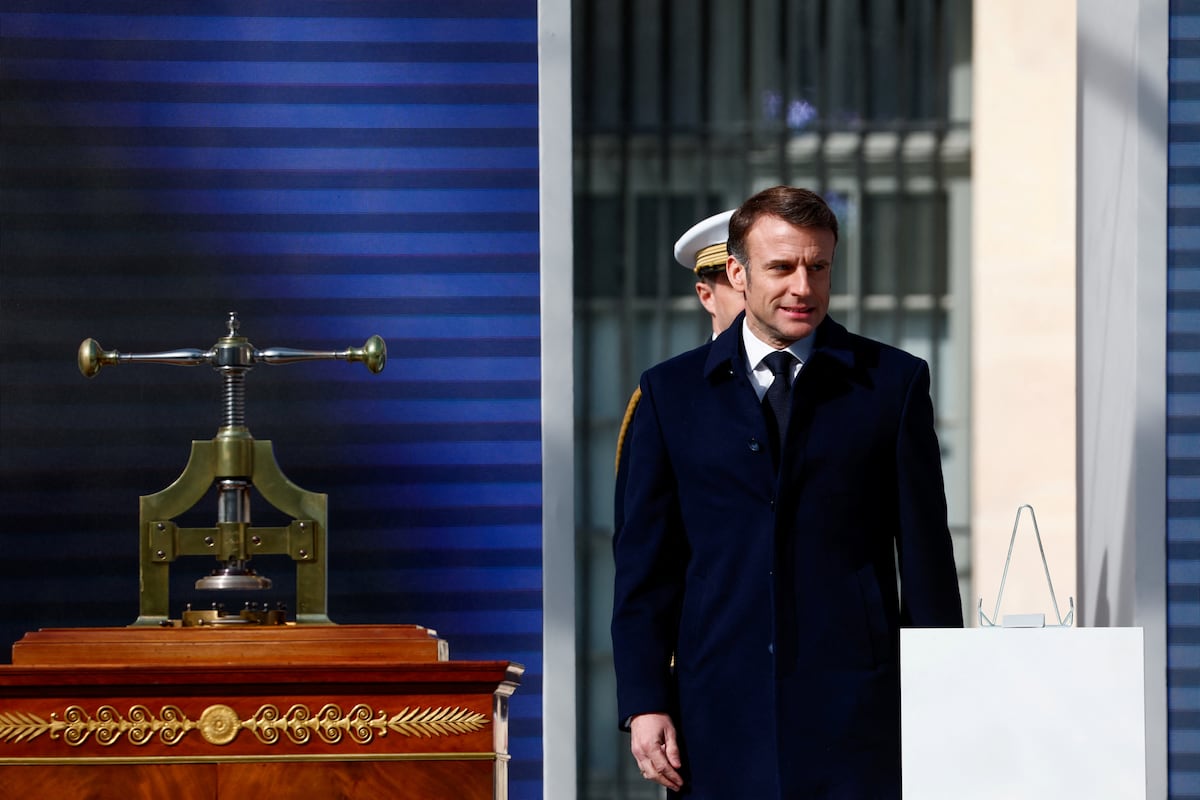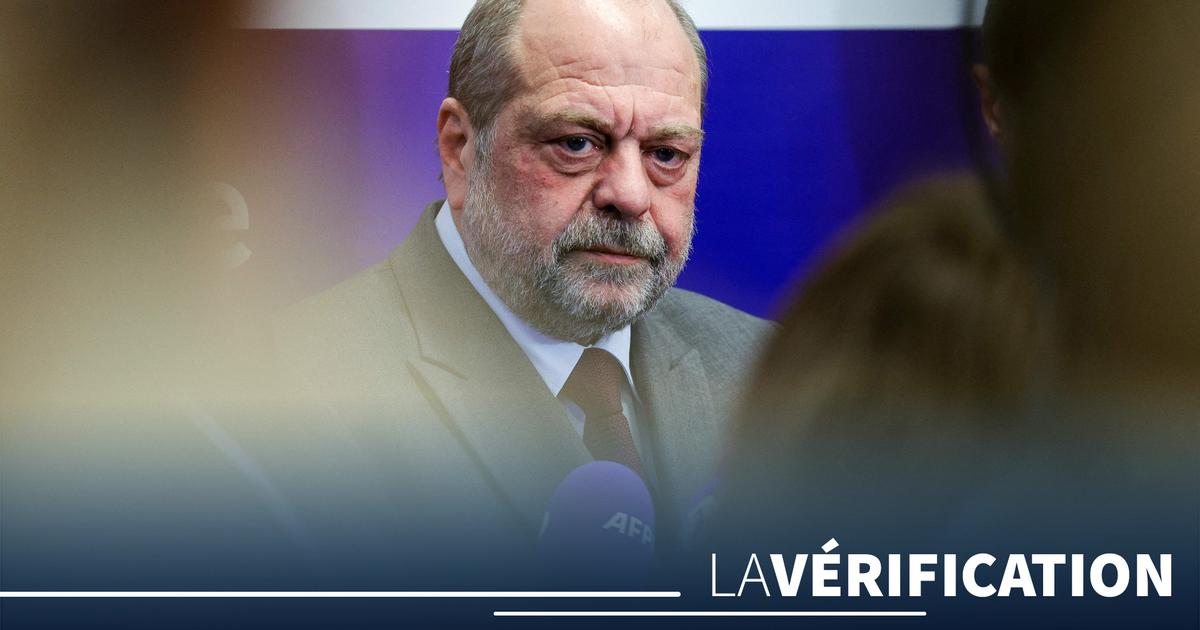Anne Levade is Professor of Public Law at the University of Paris 1 Panthéon-Sorbonne, and expert at the Club des juristes.
FIGAROVOX. - The Renaissance group has proposed including the right to abortion in the French Constitution. Elisabeth Borne affirmed that the government “will strongly support
”
this proposal.
What would be the conditions for implementing this measure?
Would it require a referendum?
Anne LEVADE. -
If the constitutional revision comes from a parliamentary initiative, which as it stands seems to be the case since there is a proposal from the Renaissance group and a senatorial proposal tabled yesterday, article 89 imposes on the one hand that the text is adopted in identical terms by the two assemblies and on the other hand that the text is ultimately approved by a referendum.
The aim is to avoid that a constitutional revision is only adopted by the parliament, and to require the intervention of the people for the final ratification.
As with any freedom, the legal regime is a regime that is set by law.
Inscribing it in the Constitution has no consequence, and therefore no utility.
Anne Levade
If adopted, what would be the legal consequences of such a measure? Would it concretely change the regime surrounding the use of abortion?
You get to the heart of the difficulty of this measure.
Affirming the right to abortion in the Constitution would have absolutely no consequences on the legal regime of abortion.
Since 1975, it has been fixed by the Veil law, which decriminalized it.
A certain number of texts have amended the Veil law, until a last one in March 2022, which extends the period for recourse to abortion to 14 weeks.
As with any freedom, the legal regime is a regime that is set by law.
Inscribing it in the Constitution has no consequence, and therefore no utility.
Inscribing the right in the Constitution does not prevent the conditions for recourse to abortion from being tightened on the occasion of a legislative reform.
I keep the example of the legal period during which one can access abortion, initially set at 10 weeks in the Veil law, now increased to 14 weeks.
If the legislator, for one reason or another, decides to return to 12 weeks, the inclusion of the right to abortion in the Constitution does not prohibit it since the legislator adjusts the conditions for exercising constitutional rights.
This does not change anything at the level of the Constitutional Council either, for two different reasons.
The first reason is that on what it calls itself "societal issues" (for example abortion, euthanasia, the opening of marriage to persons of the same sex), the Constitutional Council traditionally considers that it is legitimate to leave considerable leeway to the legislator.
In general, all matters combined, the Council considers that it does not have the same kind of discretion as the legislator.
He is not there to give his political opinion on a text, but only to control it on a legal ground.
He believes in particular on social issues, that it is up to the legislator to decide whether, at a given time, there is reason to make a change on one theme or another.
The control he exercises is
The second reason is that even if the Constitutional Council has not enshrined a constitutional right to abortion, it has considered it since 1975 as one of the manifestations of the implementation of the constitutional freedom of women, which it bases on the principle of freedom set out in article 2 of the Declaration of the Rights of Man and of the Citizen.
He reaffirmed this in the four decisions he rendered on the nine legislative reforms following the Veil law of 1975.
This reform was imagined in the emotion of the judgment of the Supreme Court with a symbolic dimension without worrying about its legal consequences.
Anne Levade
Can we speak of declarative measures that aim to convey a political message?
What is clear is that this reform was imagined in the emotion of the judgment of the Supreme Court with a symbolic dimension without worrying about its legal consequences.
My point of view as a constitutionalist is that we do not revise the Constitution for the symbol, but when we want to change something in the constitutional rules.
For example, if the government wanted to counter a decision of the Constitutional Council, it would be possible to implement what Vedel calls “the bed of constitutional justice” by revising the Constitution.
The effect obtained could also be the opposite of that sought.
The debate was extremely violent in 1975 when abortion was decriminalized.
But since the Veil law was adopted, there are no more debates.
Since 1975, we have not had extremely strong oppositions in France as we can see recurrently in the United States between the pros and the anti-abortions.
However, if a debate on a constitutional revision is engaged, a fortiori if a referendum is needed to definitively adopt this decision, there will necessarily be a debate.
It could then be that the anti-abortionists constitute themselves in a virulent opposition with regard to the constitutionalization of this right.
In view of a referendum, in view of the high abstention rates in the various elections,
Parliamentarians have other means of expressing themselves politically, for example by voting on a resolution, provided for by the Constitution.
If parliamentarians want in a resolution to express their concern with regard to the Supreme Court's decision and to reaffirm their attachment to the right to abortion, they can do so, and that is a political statement.
I am not cynical enough to consider that there is an attempt at a political coup, even if obviously, we see that the groups are at war to have the initiative on this proposal.
In particular the France Insoumise group or more broadly the Nupes coalition, seek to recover the initiative on a proposal yet announced as Renaissance.
The reaction to a foreign situation can only be a reaction of a political character.
It is a purely symbolic will, and the Constitution is not made to make symbolic stunts.
Anne Levade
What to think of a modification of the Constitution in reaction to a decision of a Court foreign to the completely different legal system?
We are really on a complete shift, see a misunderstanding of the logic.
The reaction to a foreign situation can only be a reaction of a political character.
This relates to the right of rescission.
In any event, the constitutional revision will have no effect on American law.
It is a purely symbolic will, and the Constitution is not there to make symbolic feats, or to demonstrate how much we are attached to a principle.
Revising the Constitution only makes sense if it can have the desired effect.
There is a separate opinion from a Supreme Court justice that suggests that perhaps the US Court could consider challenging contraception and same-sex marriage on comparable terms.
It would be unthinkable to
introduce the right to contraception or marriage for all in the Constitution, otherwise everything that appears in the laws would have to be put in the Constitution.
However, the object of the Constitution is not the same object as that of the laws.
The Constitution is made to fix the main principles.







/cloudfront-eu-central-1.images.arcpublishing.com/prisa/OCS7V4Q6YKB6UMI76BXPPNGQJE.jpg)







